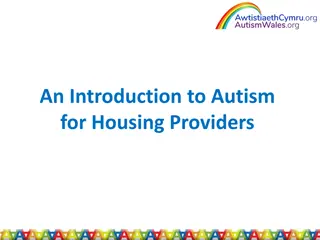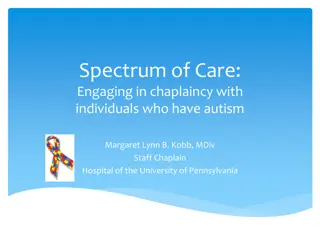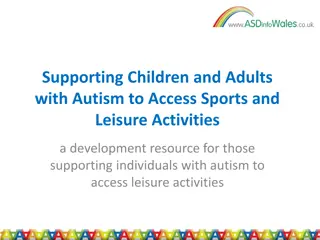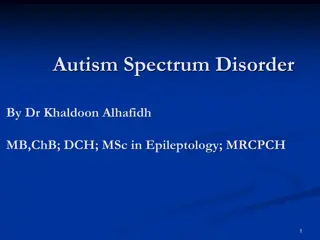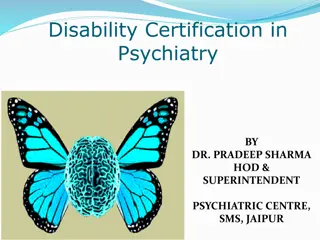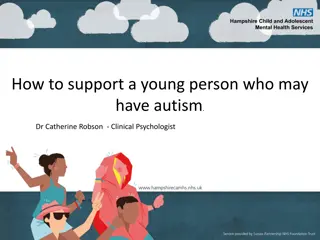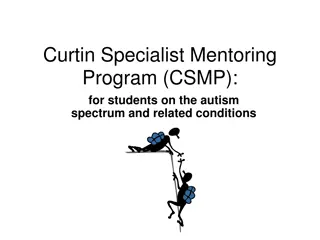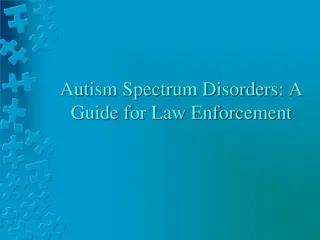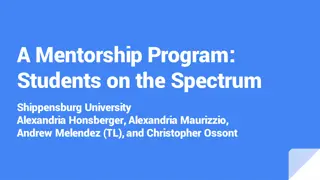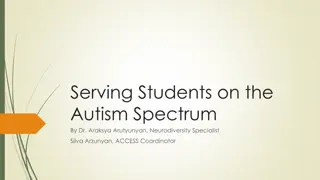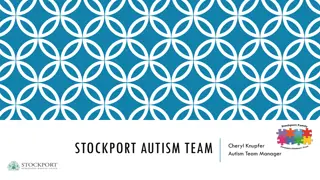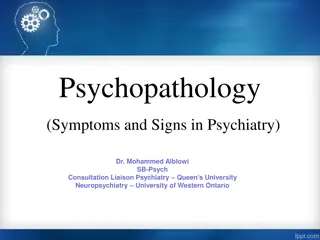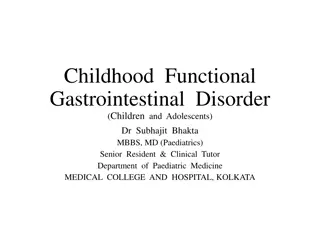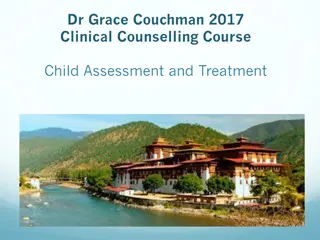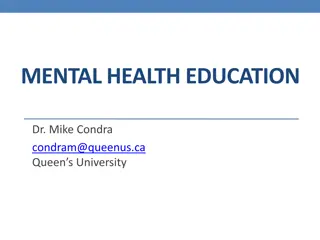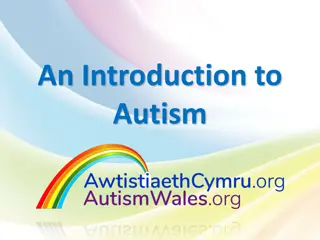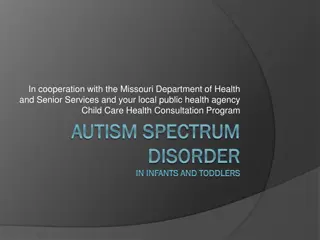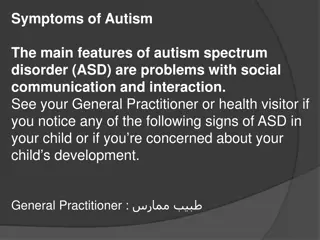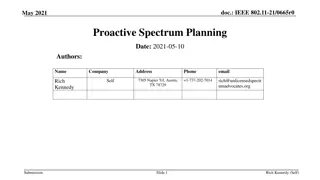Understanding Autism Spectrum Disorders: Signs, Symptoms, and Support
Autism is a neurobiological disorder affecting social interaction, communication, and behaviors. Signs and symptoms vary across different age groups, from infants to older children, highlighting difficulties in social connection, communication, and speech. Early detection is crucial for intervention and support. Shine Ireland provides valuable insights into understanding and managing autism spectrum disorders.
Download Presentation

Please find below an Image/Link to download the presentation.
The content on the website is provided AS IS for your information and personal use only. It may not be sold, licensed, or shared on other websites without obtaining consent from the author. Download presentation by click this link. If you encounter any issues during the download, it is possible that the publisher has removed the file from their server.
E N D
Presentation Transcript
Autism Spectrum Disorders and You Practice Presented by Laura Crowley Director of Educational Support Services Shine Ireland
WHAT IS AUTISM? Autism is a neurobiological disorder characterised by Abnormalities in social interaction Abnormalities in communication Restricted and often repetitive behavioural repertoires. Interests and activities. Other ASD s include Asperger Sydrome, Retts, CDD, and PDD
Signs and Symptoms Babies and Toddlers Doesn t make eye contact (e.g. look at mother/father when being fed) Doesn't smile when smiled at Doesn't respond to his or her name, or to the sound of a familiar voice Doesn t follow the gesture when you point things out Doesn t follow objects visually Doesn't point or wave goodbye, or use other gestures to communicate
Doesnt make noises to get your attention Doesn t initiate or respond to cuddling Doesn t imitate your movements and facial expressions Doesn t reach out to be picked up Doesn t play with other people or share interest and enjoyment Doesn t ask for help or make other basic requests
Signs and Symptoms Older children Signs and symptoms of social difficulties in autism Appears disinterested or unaware of other people or what s going on around them Doesn t know how to connect with others, play, or make friends Prefers not to be touched, held, or cuddled Doesn t play "pretend" games, engage in group games, imitate others, or use toys in creative ways Has trouble understanding or talking about feelings Doesn t seem to hear when others talk to him or her
Signs and symptoms of speech and language difficulties Speaks in an abnormal tone of voice, or with an odd rhythm or pitch (e.g. ends every sentence as if asking a question) Repeats the same words or phrases over and over Responds to a question by repeating it, rather than answering it Refers to themselves in the third person Has difficulty communicating needs or desires Doesn t understand simple directions, statements, or questions Takes what is said too literally (misses undertones of humour, irony, and sarcasm)
Signs and symptoms of nonverbal communication difficulties Avoids eye contact or eye contact may be atypical Uses facial expressions that don't match what he or she is saying Doesn t pick up on other people s facial expressions, tone of voice, and gestures Makes very few gestures (such as pointing). May come across as cold or robot-like. Reacts unusually to sights, smells, textures, and sounds. May be especially sensitive to loud noises. Abnormal posture, clumsiness, or eccentric ways of moving (e.g. Toe walking)
What can I do if a parent suspects autism? Listen Do not dismiss concerns Assessment of Need Offer them a realistic overview of the public diagnosis procedure
Irish Autism Diagnostic Procedure Autism Suspected Public Private Assessment of Need Clinical /Educational Psychologist Multi Disciplinary Team Multidisciplinary Team Autism Assessment SENO
Post Diagnostic Advice for parents Acknowledge the double edged sword Do not Google! http://www.autismawareness.ie/ Acknowledge emotions and the grieving process Caring for the caregiver Join a parent support group (even if only online) Contact Shine or other parent support services for advice on entitlements and services available e.g. DCA, CA and ICTC Technology communication, social, and behaviour apps e.g. Mission Rescue Kloog: Social Skills for Autism


